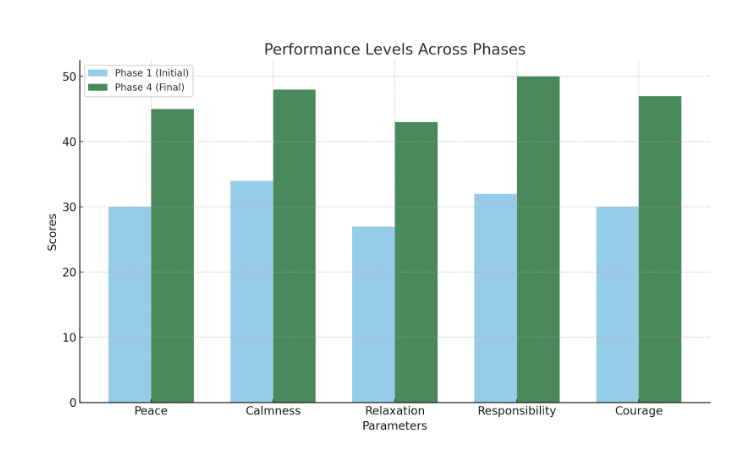Abstract
The concept of individuality, situated at the interval of philosophy, psychology, and education,
functions as a transformative path toward existential freedom and inner fulfillment. This paper
compares two profound visionaries—Ralph Waldo Emerson, the American transcendentalist,
and Rajneesh (Osho), the Indian mystic—who each highlighted the importance of individuality
as a vibrant force for personal growth. Through close textual analysis, this study validates that
cultivating individuality enriches emotional resilience, critical thinking, and inner clarity. Both
proponents rejected conformity and rigid dogma, advocating for experiential self-guided growth.
Their insights offer a commanding, scientifically informed, and human-centered approach to
holistic transformation in contemporary educational and developmental structures.
Research ID
Citation Generator
Cite This Research Manuscript
Figures

References (APA)
- Emerson, R. W. (1972). Education. In R. E. Spiller & W. E. Williams (Eds.), The early lectures of R.W. Emerson: Vol. 3. 1838–1842. The Belknap Press of Harvard University Press.
- Emerson, R. W. (1982). Nature. In L. Ziff (Ed.), R.W. Emerson: Selected essays. Penguin.
- Emerson, R. W. (2004). Meditations of Ralph Waldo Emerson. Wilderness Press.
- Foucault, M. (1977). Discipline and punish: The birth of the prison (A. Sheridan, Trans.). Pantheon Books. (Original work published 1975)
- Freud, S. (1955). A difficulty in the path of psycho-analysis. In J. Strachey (Ed. & Trans.), The standard edition of the complete psychological works of Sigmund Freud (Vol. 17, pp. 135–144). The Hogarth Press. (Original work published 1917)
- Krishnamurti, J. (1953). Education and the significance of life. Harper & Row.
- Krishnamurti, J. (1954). The first and last freedom. Krishnamurti Foundation of India.
- Krishnamurti, J. (1958). The importance of negative thinking. Krishnamurti Foundation of India.
- Krishnamurti, J. (2001). What are you doing with your life? Krishnamurti Foundation of India.
- Nussbaum, M. C. (2011). Creating capabilities: The human development approach. The Belknap Press of Harvard University Press.
- Osho. (1974). Bliss: The psychology of the buddhas. Osho Media International.
- Osho. (1998). The book of the secrets (Vols. 1–5). St. Martin's Griffin.
- Osho. (1999). Creativity: Unleashing the forces within. St. Martin's Press. (Original work published 1991)
- Osho. (2010). The book of secrets: 112 meditations to discover the mystery within. St. Martin's Griffin. (Original work published 1973)
- Rogers, C. R. (1961). On becoming a person: A therapist’s view of psychotherapy. Houghton Mifflin.
- Web Sources (Sample)
- Bradberry, T. (2015, January 7). Why you need emotional intelligence to succeed. Forbes. https://www.forbes.com/sites/travisbradberry/2015/01/07/why-you-need-emotional-intelligence-to-succeed/
- History.com Editors. (2022, August 3). Marilyn Monroe is found dead. History. https://www.history.com/this-day-in-history/marilyn-monroe-is-found-dead
- Identity (social science). (n.d.). In Wikipedia. Retrieved July 11, 2025, from https://en.wikipedia.org/wiki/Identity_(social_science
- J. Krishnamurti Foundation. (n.d.). The core of the teachings. http://www.jkrishnamurti.org/about-krishnamurti/the-core-of-the-teachings.php
- OSHO International. (n.d.). Education: Forward to the real basics. OSHO. http://www.osho.com/read/osho/vision/the-greatest-challenge-the-golden-future/education-forward-to-the-real-basics
- The Writing Web. (2011, February 14). Emerson’s pedagogy: Radically relevant. https://blog.richmond.edu/writing/2011/02/14/emersons-pedagogy-radically-relevant


